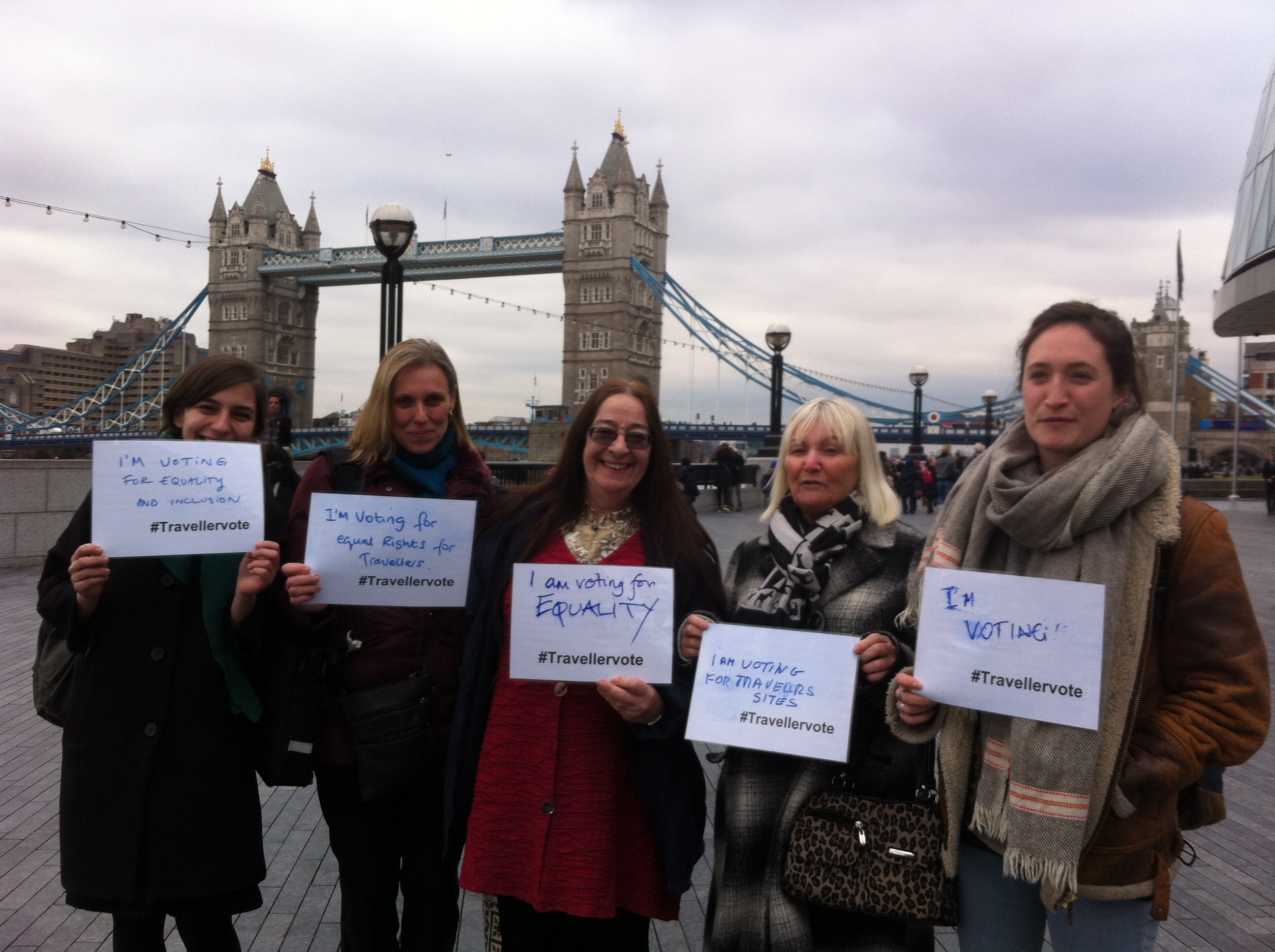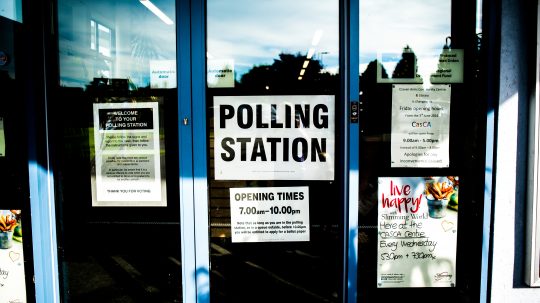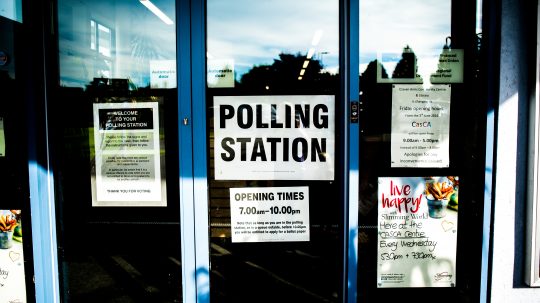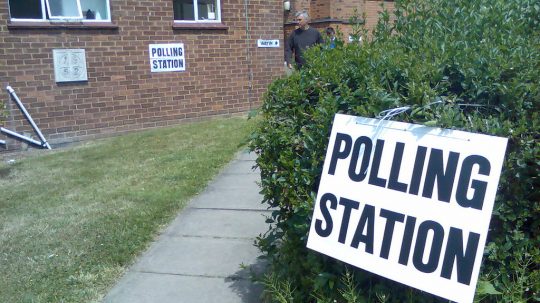At the annual Queen’s Speech last week, the controversial Electoral Integrity Bill was announced. If passed, it means that voters will need to produce a valid form of photo ID when they cast their vote. The government rationale behind the legislation is to secure trust and prevent fraud in UK voting systems. It is thought the legislation will be in place by next year.
Despite being routinely practiced in many countries, including Northern Ireland and the United States, this type of legislation has been criticised for deterring voters and, more problematically, disenfranchising poorer, minority and elderly voters. This is due to the fact that procuring approved forms of identification can be expensive and time consuming.
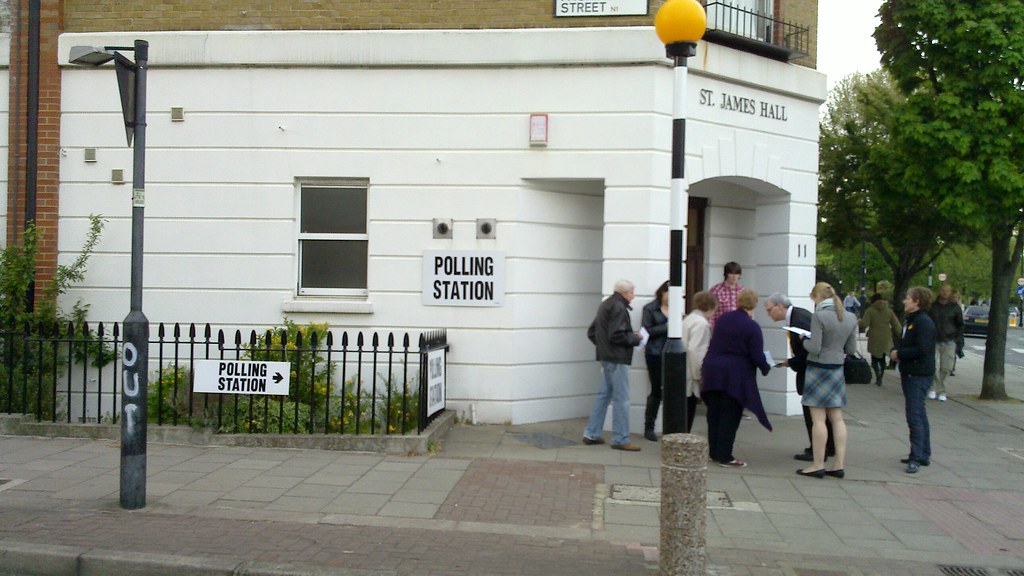
A polling station (Credit: Celesteh)
Since this bill was first proposed in 2015, civil society groups and politicians have likened the proposals to voter suppression tactics in the United States, citing their ability to deter marginalised voters and prevent full democratic engagement. The criticism in the United Kingdom ranges from the negligible levels of voter personation (fraud), the cost implication of procuring valid photo ID, and the lack of free universal photographic ID.
In the UK context, this has been the most contentious element of the new proposed bill, aside from the ideological arguments that the law is bureaucratic, unnecessary and intentionally discriminatory. A study commissioned by the Cabinet Office and published on March 31 found that 9 per cent of UK adults lacked photographic identification that was still valid and had a recognisable photograph. That’s approximately two million people (Cabinet office, 2021) . It is difficult to know what percentage of GRT do not possess photo ID, but likely the very young or the very old.
According to the Cabinet Office’s own report those without any photo ID at the time of the survey were substantially more likely to believe the requirement for photo ID would make voting difficult (39%).
Impact of voter ID legislation on Gypsies, Roma and Travellers (GRT)
Despite public perception, not all Travellers are nomadic. Approximately 75% live in bricks and mortar homes; 15% live on permanent local authority-run sites while the remainder live on private sites, and a small minority of approximately 3,000 families are nomadic.
Nomadic Travellers will certainly face barriers to voting as they are at high risk of eviction and forced removal. However, there is also widespread mistrust against politicians among all Gypsies and Travellers (housed, nomadic, or living on sites) due to the persistent discriminatory rhetoric rolled out before every local and general election. It is still common for politicians to refer to Travellers as a ‘disease’ or a ‘plague’, language not uttered against any other ethnic group. Just recently, The Times newspaper centred a derogatory and xenophobic comment piece on the community. Given the toxic political rhetoric aimed at Travellers, the introduction of new voter ID laws will only serve as an additional barrier to democratic participation.
Considering the extremely low levels of voter personation in the UK, is compulsory voter ID even appropriate?? Or will this supposedly neutral, universal law result in indirect discrimination against marginalised voters?
Requiring voters to produce photo ID would put millions of people at a particular disadvantage when it comes to voting, with Gypsy, Roma and Traveller people among some of hardest hit. Unless the government intends to introduce a Northern Ireland-style free election card system, it runs the risk of indirectly discriminating against poorer and other marginalised voters from casting a vote.
What are the human rights implications of voter ID legislation?
Article 3 of the First Protocol to the European Convention on Human Rights (ECHR) requires state parties to “hold free elections at reasonable intervals by secret ballot, under conditions which will ensure the free expression of the opinion of the people in choice of the legislature”. The ECHR provides the framework upon which we base these rights yet imposes a wide berth – a state can impose conditions where it deems necessary. The Court however, has emphasised that the conditions imposed by a State “must not curtail the rights in question in a way that impairs their very essence and effectiveness, and that the conditions must be proportionate and pursue a legitimate aim”.
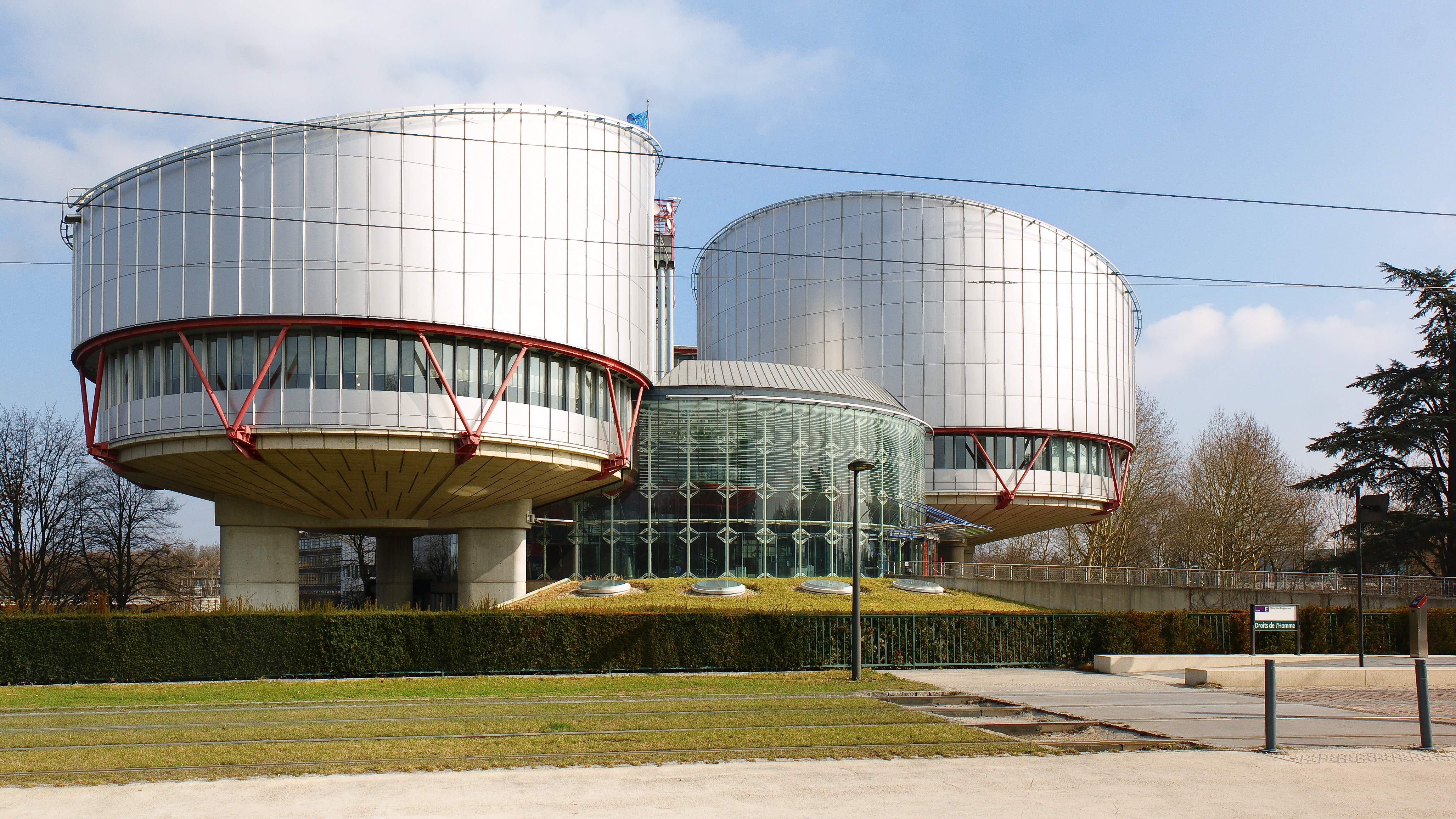
The European Court of Human Rights (Credit: Wikimedia Commons)
This means that whatever conditions are put in place, they must serve a legitimate aim. The inclusion of mandatory photo ID in Northern Ireland was introduced in response to widespread concerns over electoral fraud; something that simply is not the case in the rest of the UK. Northern Ireland issues a universal photo card, which voters without valid ID can apply for through their local authority.
What will voter ID laws achieve?
It is against these deep barriers we must criticise voter ID laws. Instead of solving the fundamental issues at the heart of GRT political engagement, they worsen them and set in stone the vicious cycle of alienation, lack of engagement, and disempowerment.
Ultimately, the UK government must be mindful of its human rights obligations. But given the utter lack of evidence in relation to voter personation, let’s call voter ID laws what they really are; an arbitrary and unreasonable discrimination against poorer and more marginalised voters.
The views expressed in this article are those of the author and do not necessarily reflect the views of EachOther.

